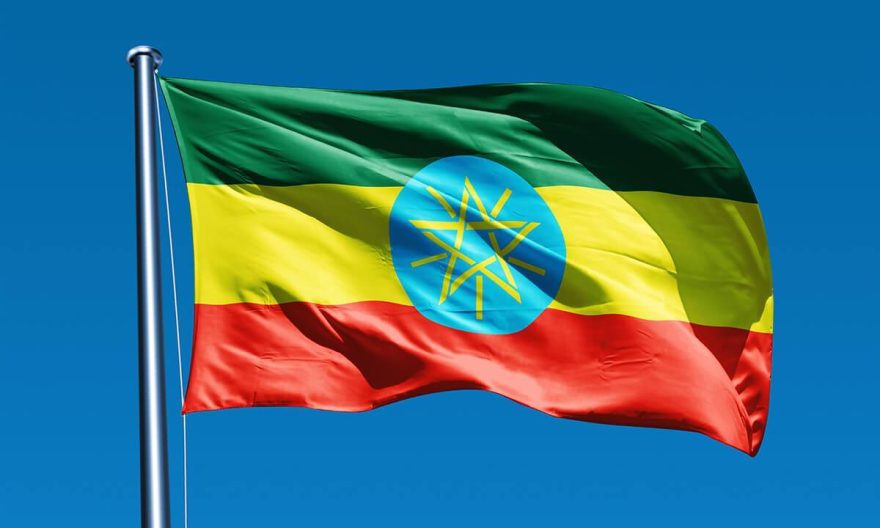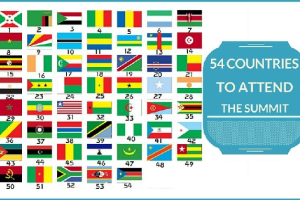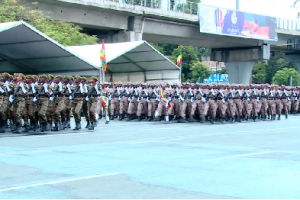
In the annals of world politics, the quest for sovereignty has been a central theme, with nations striving to protect their independence from external threats. Throughout history, countries have come together to support one another in times of crisis, particularly when their sovereignty is under attack. This narrative holds particular significance for many African nations during the era of European colonization, with one notable exception: Ethiopia.
Ethiopia stands out as the only African nation that successfully resisted colonization by Italian invaders. The bravery and resilience of Ethiopian forefathers and mothers in their fight against foreign domination are legendary. Their sacrifices ensured that Ethiopia remained a sovereign nation, allowing future generations to inherit a country free from colonial rule. This remarkable feat has filled Ethiopia with a unique historical identity; rather than celebrating an Independence Day, Ethiopia commemorates a Victory Day, honoring the triumphs of its ancestors.
The courageous spirit of the Ethiopian people extends beyond their borders. Throughout history, Ethiopia has lent its support to various nations during their times of need, exemplifying a commitment to pan-African solidarity. One significant instance of this support occurred when Ethiopia assisted South Korea during its challenging period, demonstrating a willingness to extend help across oceans and continents.
In addition to its historical contributions, Ethiopia has worked tirelessly to promote peace and security in the Horn of Africa. The sacrifices made by Ethiopian troops in Somalia over the past decade underscore this commitment. Their presence has been instrumental in stabilizing the region, and their contributions to the reestablishment of Villa Somalia have been invaluable. Despite these efforts, some nations have chosen to overlook Ethiopia’s unwavering support. Instead, they have aligned with Ethiopia’s adversaries, betraying the trust built through years of cooperation.
Recently, tensions between Ethiopia and Somalia have emerged, with Egypt reportedly attempting to exploit the situation for its own agenda. This maneuvering illustrates how geopolitical dynamics can distort the narrative of solidarity and support that Ethiopia has championed.
The Cairo agenda, purportedly under the guise of peacekeeping in Somalia, has drawn criticism from Somalis themselves. Egypt’s self-proclamation as peacemakers in Somalia, despite not being present during critical times, is seen as questionable. Egypt’s involvement is viewed skeptically due to its own regional challenges. Conversely, Ethiopia is not just a neighbor but also a close ally and second home for many Somalis.
In an exclusive interview with The Ethiopian Herald, Gizachew Asrat (PhD) Foreign Affairs Institute Senior African Affairs Researcher discussed Ethiopia’s significant contributions to peace operations, both regionally and globally. He underscored the well-documented efforts of Ethiopian troops in Somalia, where they have been deployed for over 15 years, sacrificing their lives to foster peace in the region.
Ethiopian forces have played a crucial role in combating terrorist groups like al-Shabaab, which pose threats not only to Somalia but also to regional stability. Gizachew emphasized that the contributions of Ethiopian troops to peacekeeping are not a matter of debate; they have been effective and successful in their mission.
Regarding the transition of the African Union Transition Mission in Somalia (ATMIS) to a new mandate, he explained the critical need for a seamless transfer of responsibilities. He stressed that this transition must avoid creating a security vacuum that could empower terrorist groups in the region. “The shift from ATMIS to the new mandate must be managed carefully to maintain stability and prevent the resurgence of al- Shabaab,” he said.
Gizachew also addressed the geopolitical tensions arising from recent diplomatic moves by Somalia and Egypt, stating, “These actions are not conducive to regional integration and cooperation.” He emphasized that while Ethiopia values cooperation and goodwill among nations, it cannot compromise its national interests. “Every state has its own priorities when it comes to defending its territory and national security,” he remarked.
He urged regional leaders to engage in “intellectual honesty” and work to build trust, moving beyond historical grievances to foster stronger relationships. “Each state has its sovereignty and principles of equality, and Ethiopia is prepared to defend its national interests if threatened,” he concluded.
In this complex landscape, Gizachew advocates for a collaborative approach to regional security, firmly rooted in mutual respect and understanding.
In similar vein, Ethiopia’s commitment to national sovereignty and self-defense has been underscored by recent statements from government officials and researchers. As tensions rise in the Horn of Africa, particularly concerning Egypt’s potential military involvement in Somalia, Ethiopia asserts its readiness to defend itself against any external threats.
During a recent briefing by the Ministry of Foreign Affairs, it was emphasized that while Somalia, as a sovereign nation, holds the right to enter into bilateral agreements with other countries, Ethiopia will not compromise its national security.
The ministry also reiterated Ethiopia’s commitment to resolving all diplomatic disputes with the Somali government peacefully.
Also on his recent stay with The Ethiopian Herald, Befikadu Bogale, a researcher at the Institute of Foreign Affairs for the Horn of Africa, shared his concerns regarding the deployment of a peacekeeping force in Somalia following the conclusion of the African Transition Mission in Somalia (ATMIS) mandate
Ethiopia has consistently advocated for peaceful negotiations to resolve misunderstandings with the Somali government. However, officials have made it clear that if provoked; Ethiopia stands ready to respond decisively, safeguarding its national interests and sovereignty.
The Ethiopian government calls on other nations to refrain from actions that could destabilize the region further. Ethiopia has a historical legacy of bravery and resilience, and it remains committed to protecting its sovereignty against any threats.
As Ethiopia continues its path toward prosperity, recent developments in the Grand Ethiopian Renaissance Dam (GERD) project now expanded to four operational units illustrate the country’s determination to advance economically and strategically. Ethiopia remains open to collaboration with other nations, but it firmly asserts that any attempts to undermine its progress will not be tolerated.
Ethiopia’s commitment to peacekeeping in the region stands firm, rooted in a deep sense of responsibility and national interest. Also, the country’s leadership emphasizes the importance of diplomacy while being prepared to defend its sovereignty and national interests against any threats that may arise in the region.
BY EYUEL KIFLU
The Ethiopian Herald September 8/2024





